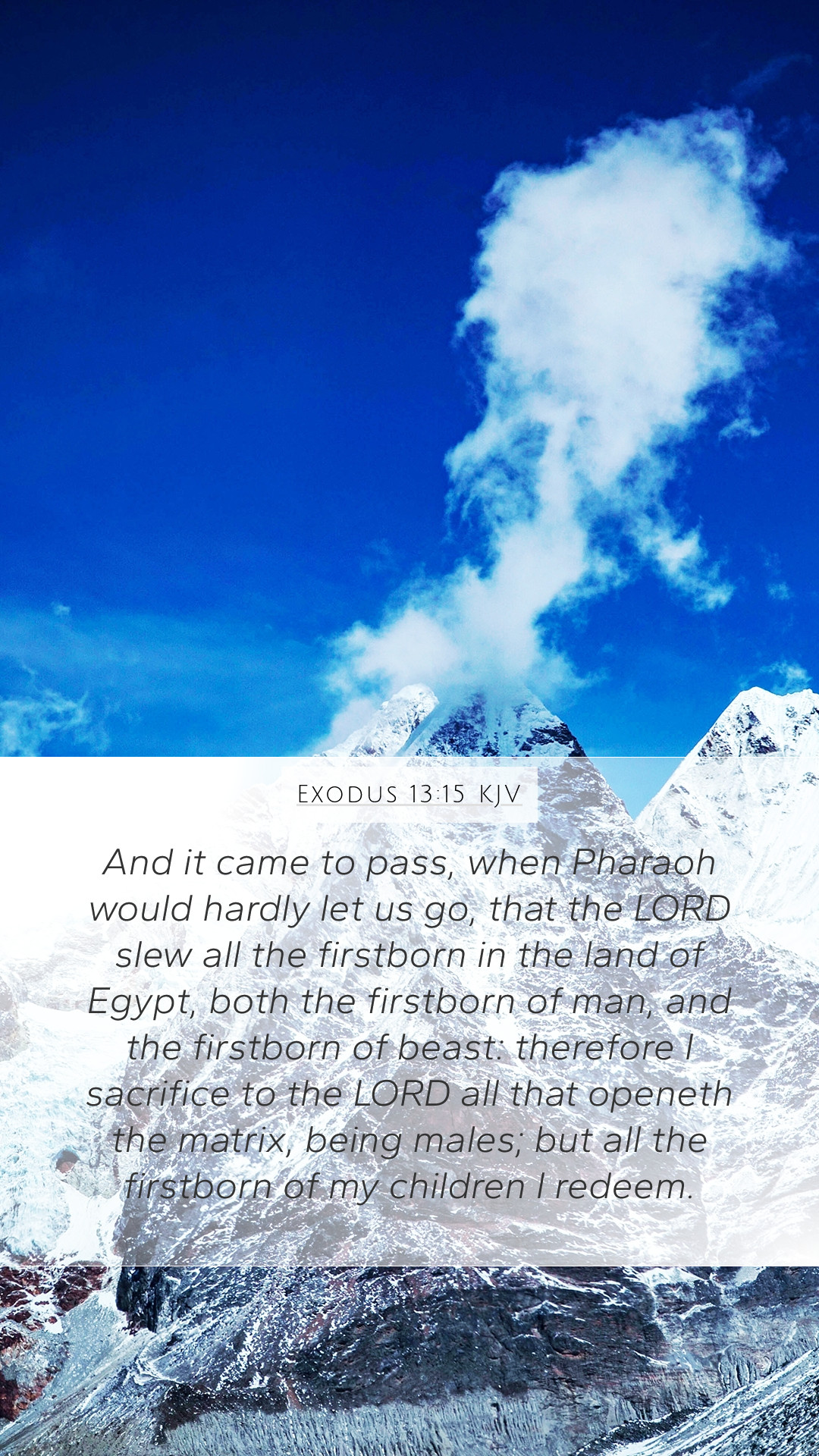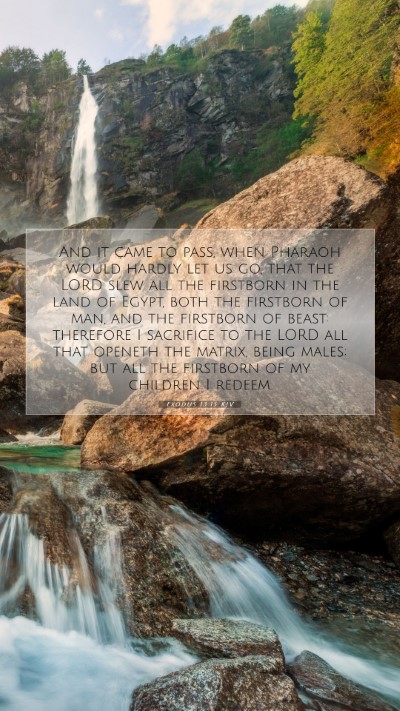Understanding Exodus 13:15
Exodus 13:15 states: “And it came to pass, when Pharaoh would hardly let us go, that the Lord slew all the firstborn in the land of Egypt, both the firstborn of man, and the firstborn of beast: therefore I sacrifice to the Lord all that openeth the matrix, being males; but all the firstborn of my children I redeem.” This verse emphasizes the significance of God's deliverance and the redemptive practices established in response to His mercy.
Biblical Context
This verse occurs in a pivotal moment of the Exodus narrative where God commands the Israelites to remember the event of deliverance from Egypt. It sets forth a principle of remembrance and sacrifice as a response to divine intervention.
Meaning of Exodus 13:15
The meaning of this verse can be unpacked by understanding several critical elements:
- Divine Judgment: This verse references the final plague that God inflicted upon Egypt—the death of the firstborn. It highlights the serious nature of disobedience to God.
- Sacrifice as Response: The commandment to sacrifice the firstborn reflects an act of gratitude and acknowledgment of God's mercy towards the Israelites.
- Redemption: The concept of redeeming the firstborn serves as a foreshadowing of future redemption themes in Scripture, culminating in the New Testament.
Commentary Insights
Matthew Henry's Commentary
Matthew Henry notes that this verse encapsulates the essence of God’s protection over Israel. The deaths of the firstborn in Egypt were a stark reminder of the price of rebellion against God, while the sacrificial act constituted an expression of devotion from the Israelites. It suggests an ongoing remembrance of God’s providential care.
Albert Barnes' Notes
Albert Barnes emphasizes the historical necessity for the Israelites to create rituals around their deliverance. By sacrificing the firstborn males, they were enshrining their grateful acknowledgment of God's mercy. This act connects them to their heritage and reminds future generations of God’s deliverance.
Adam Clarke's Commentary
Adam Clarke elaborates on the terminology used in “openeth the matrix,” explaining it as a reference to the womb. He indicates that this phrase links to God’s creative power and providence in life. Clarke points out that the practice of redemption of the firstborn shows both respect for the divine act of creation and an understanding of redemption.
Application in Daily Life
Understanding this verse encourages believers to reflect on the importance of God's past salvific acts. It invokes the question of how one can respond to God’s grace in modern daily living. Here are some applications:
- Remembrance: Regularly take time to remember the ways in which God has intervened in your life.
- Gratitude: Foster a spirit of thankfulness that recognizes God’s hand in your affairs.
- Redemption Theme: Look for ways to embody the principle of redemption in your interactions and relationships.
Importance of Sacrifice
The concept of sacrifice is not merely an Old Testament practice but evolves into a New Testament understanding of sacrificial love, particularly through Christ’s sacrifice. This understanding, therefore, bridges the Testaments and enriches a believer's theology.
Bible Verse Cross References
- Exodus 12:29-30: The narrative of the death of the firstborn during the Passover.
- Numbers 3:41: The specifics of redeeming the firstborn sons.
- Deuteronomy 15:19-20: Continues the theme of treating the firstborn with care.
- Luke 2:22-24: Mary and Joseph’s fulfillment of sacrificing at Jesus' presentation.
- Romans 12:1: The New Testament principle of presenting oneself as a living sacrifice.
Final Thoughts
Exodus 13:15 encourages believers to appreciate the foundation of their faith rooted in sacrifice and redemption. It invites deeper Bible study insights as one seeks to uncover the layers of meaning within Scripture, leading to enhanced Bible verse understanding and Bible verse explanations. Engaging with this verse and its commentaries can yield profound insights applicable to modern life.
Conclusion
This in-depth analysis of Exodus 13:15 not only sheds light on the historical and spiritual significance of the passage but also invites believers into reflective practice. As you explore Bible study lessons and resources, consider the depth of meaning in Biblical exegesis and how it applies to your journey of faith.


